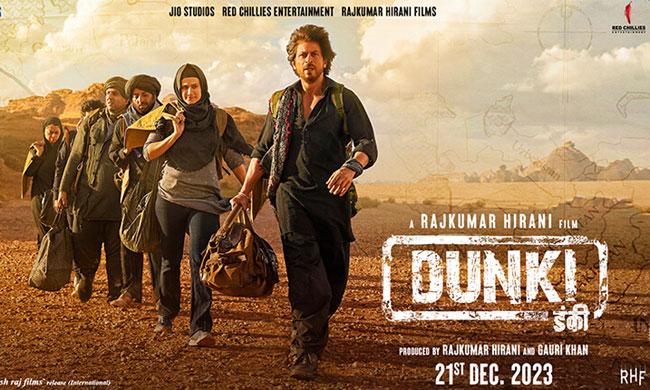In the eagerly awaited partnership between acclaimed director Rajkumar Hirani and leading actor Shah Rukh Khan, the film ‘Dunki’ endeavors to spotlight significant societal issues. Yet, as the tale progresses, a segment of the audience perceives the narrative technique as somewhat foreseeable and forced.
The storyline focuses on the challenges faced by destitute unauthorized migrants from Punjab, illustrating their risky voyage in pursuit of improved prospects. A significant sequence within the film epitomizes this repetitive theme, where protagonists employ reiterated strategies, mirroring the recurring pattern that certain reviewers detect in Hirani’s directorial approach. Although Hirani has invariably connected with viewers, the innovative flair typically linked with his creations appears to be absent in ‘Dunki’.

The narrative unfolds around the ambitions of four residents from a Punjab locale striving to relocate to London for enhanced livelihoods. Their trajectory shifts upon the arrival of Hardy (essayed by Shah Rukh Khan), a former serviceman who facilitates their aspirations through atypical routes. Amid these events, a secondary storyline evolves, emphasizing Hardy’s escalating fondness for Manu (acted by Taapsee Pannu), underscoring the tension between affection and ambition.
Though the portrayal of illegal migration may appear groundbreaking for typical Hindi films, it echoes themes explored in regional Punjabi cinema and authentic narratives. As ‘Dunki’ delves into these tribulations, spectators yearn for heightened intricacy and sentiment, particularly given the film’s conclusion featuring impactful imagery and data underscoring the issue’s significance.










